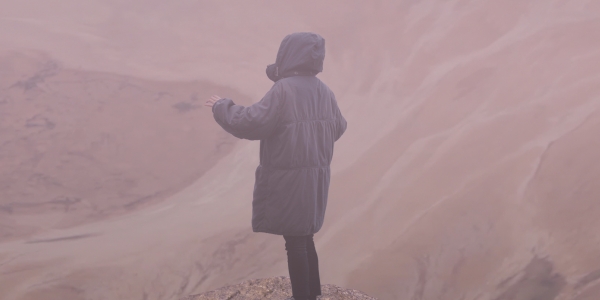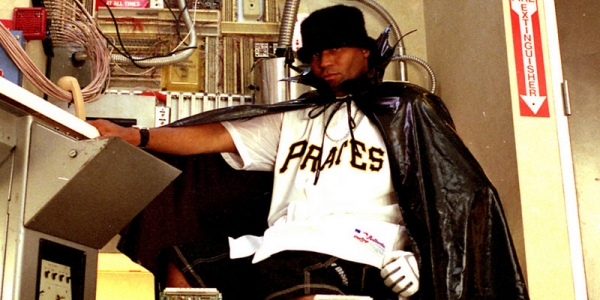Since studying media art at RMIT, Scoglio has gone on to create an exciting portfolio of work which cannot easily be categorised. Her resume is bursting with works both independent and commissioned, featured both inside galleries and out on the streets in such events as the Gertrude Street Projection Festival. Working within an array of mediums from traditional art installations to glitzy, hi-tech video projections and physical performances, Scoglio has a vast repertoire to draw from to tell her stories. And Shifting Ground is set to be her most encompassing chronicle yet. “I’ve done lots of solo and collaborative works, but this is the biggest scale project that I’ve done so far,” Scoglio explains. “It’s a coming together of all my different practices and my different ideas that have been developing for a few years now.”
And these ideas? Rocks. Scoglio loves the idea of being able to bring attention to something so unassuming, and hopefully make people second guess their initial indifference to such undervalued objects.
“A sense of curiosity is a big thing that I’m interested in [people getting from the performance],” she hopes. “Getting people to look at objects that we have in our everyday lives – things like rocks that we come across everyday – but looking at them in all their varied possibilities, and with all the history that they have.” Taking place within the Meat Market’s very pertinent Studio B, this part-performance part-installation will become a space in which Scoglio will perform – “I wouldn’t call it dance, I’d call it movement” – while her own video creations will be projected on to herself and the set around her. Both live processed and pre-recorded sounds will accompany the visual and in fact play a very integral part of the overall display.
“I’ve been working closely with the sound designer Nigel Brown to make the sound,” says Scoglio. “I’ll be doing some vocalisation and I’ll be using rocks as instruments as well as surfaces to project on to.” It’s a technical extravaganza, and the contrast between the subject matter and the medium in which she’s portraying it is not lost on Scoglio. “I’m enjoying having really simple lo-fi objects like rocks, and then mixing that with hi-tech, sort of snazzy effects.”
Rocks may seem a dull subject matter for such a creative artist, but Scoglio insists, “I’ve always been fascinated [with rocks] and the more I learn, the more curious I become. I’m interested in the minerals you find in the rocks, and how in the human body those same minerals can be found. Looking at those similarities that we have to geological substances – there’s a lot there to keep me occupied just with geology alone.” But the initial concept runs deeper than an inquisitive affection for our hard little sometimes-pets. “My work has always been interested in exploring transformation and making illusions through video and sound,” she tells me. “It’s sort of naturally gravitated towards rocks, and looking at geological substances and the way that they transform. But also looking at the rocks as sentient beings; bringing rocks to life in a sense.”
In preparing for Shifting Ground, Scoglio has worked with a number of different experts and scientists to help her grasp the complexity of that which she is trying to expose. While scientists and artists aren’t the most natural of bedfellows, it’s been a great excuse for her to use her art as a way to learn about the world which, she says, is why she does it. “Science is the leading way in which we learn about the world at the moment, so I think it’s a really important area to connect with when making artwork,” Scoglio says. “Also connecting that to other ideas which could be called spiritual or esoteric, and sort of combining all that with more creative, playful approaches to how we see the earth.” There’s an expectation that when it comes to an artist’s take on humans versus their natural world, it is going to be a cynical attack on humanity. But Scoglio insists that “it’s not as black and white as that” and refuses to take the typical humans-are-ruining-the-world approach.
Scoglio explains, “I think it’s fascinating that we can take resources from the earth that have taken millennia to form without considering what impact that might have. I’m interested [in] our sense of ownership of the land, and our shared responsibility to look after it, as well as distribute its resources.” And while Scoglio admits she is worried about where the natural world is heading, she says her viewpoint is more open to interpretation. “There’s one level that sort of questions those relationships, but it’s not taking sides. It’s definitely ‘let’s have a conversation’ and look at it from a new angle, rather than posing one alternative or one viewpoint. It’s about dissecting that and finding new ways of looking at that relationship.”
BY KATE MCCARTEN







